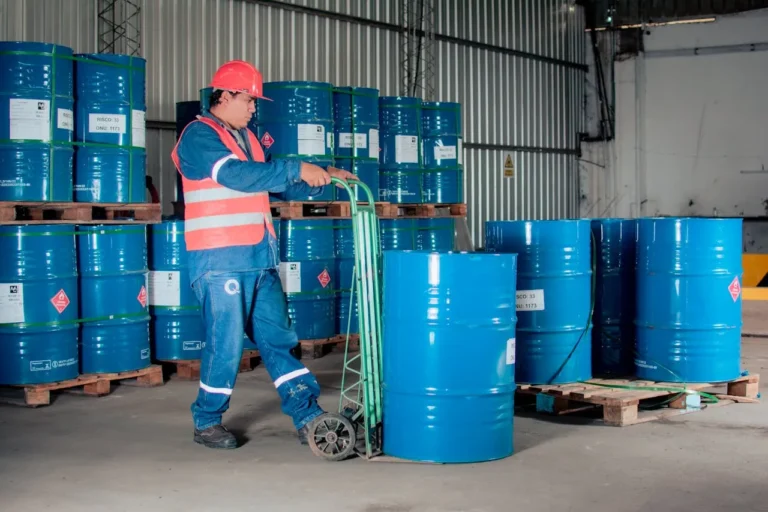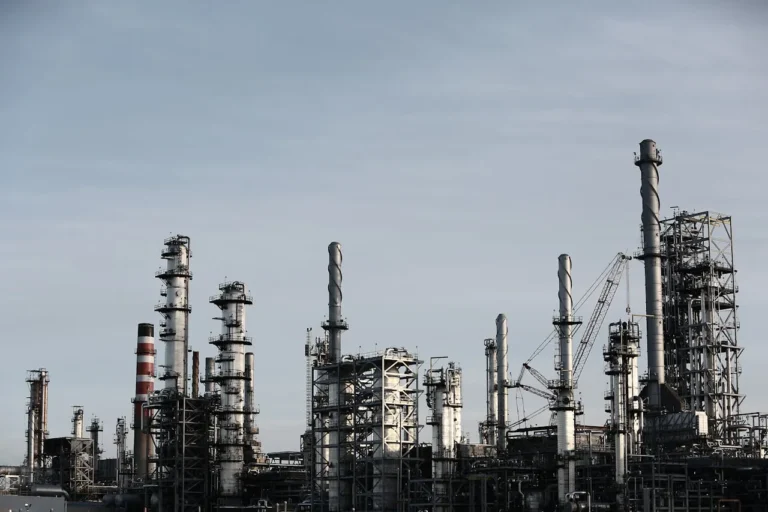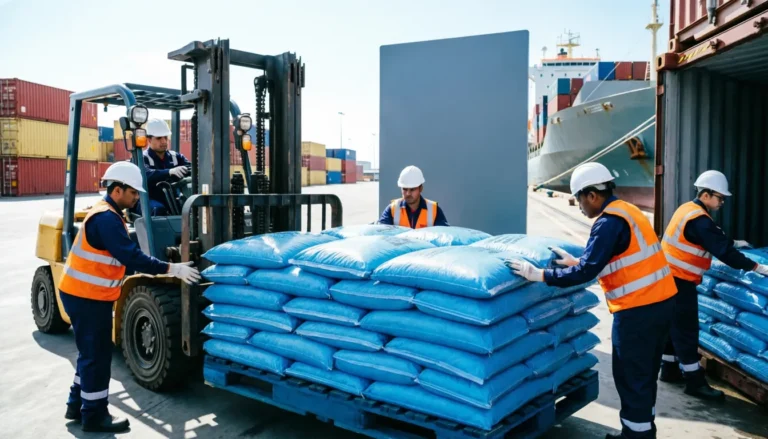
Aramco and Yokogawa Achieve Breakthrough in Industrial AI with Deployment of Autonomous Control Agents at Fadhili Gas Plant
Yokogawa Electric Corporation (TOKYO: 6841), a global leader in industrial automation and process control, has announced a landmark achievement in the field of industrial artificial intelligence (AI). In collaboration with Aramco, one of the world’s largest integrated energy and chemicals companies, Yokogawa has successfully commissioned and deployed multiple autonomous control AI agents at Aramco’s Fadhili Gas Plant in the Kingdom of Saudi Arabia. This milestone marks a significant step forward in the realization of fully autonomous plant operations and sets a new global benchmark for industrial AI innovation in the energy sector.
A New Era of Intelligent Operations
The implementation of autonomous control systems represents a paradigm shift in how process industries manage complex operations. For decades, automation has focused primarily on human-supervised control systems—helping operators make better decisions through data visualization and optimization tools. However, the latest development between Yokogawa and Aramco moves beyond traditional automation toward industrial autonomy, where AI agents can independently analyze conditions, make control decisions, and continuously optimize plant performance in real time.
The project at the Fadhili Gas Plant—one of Aramco’s major gas processing facilities—marks the first successful deployment of multiple coordinated autonomous control AI agents in a large-scale production environment. By integrating Yokogawa’s advanced AI technologies directly into plant operations, Aramco and Yokogawa have demonstrated the potential for artificial intelligence to not only assist human operators but to safely take command of complex control tasks traditionally handled manually.
The Technology Behind the Breakthrough
At the core of this innovation lies Yokogawa’s proprietary Factorial Kernel Dynamic Policy Programming (FKDPP) algorithm—a reinforcement learning-based AI framework developed to handle dynamic, multivariable industrial processes. The FKDPP approach allows AI agents to learn optimal control policies by interacting with process models and real-world plant data. Unlike conventional optimization systems that depend on fixed models or pre-programmed logic, reinforcement learning agents continuously adapt to changing conditions, making them ideally suited for environments like gas processing plants where temperature, pressure, and composition can vary unpredictably.
Yokogawa’s system employs multiple AI agents working in coordination, each responsible for managing different aspects of the process. This distributed intelligence enables the AI to balance competing operational objectives—such as minimizing energy consumption, reducing emissions, and maintaining process stability—while ensuring safety and compliance with plant control standards.
Phased Implementation for Maximum Safety and Reliability
Given the critical nature of gas processing operations, the introduction of autonomous control was executed through a phased approach designed to ensure safety, reliability, and compliance with operational standards.
In the first phase, Yokogawa engineers built a high-fidelity digital simulator of the Fadhili Gas Plant’s Acid Gas Removal (AGR) unit. This virtual model reproduced the complex chemical and physical dynamics of the plant, allowing the AI agents to be trained extensively in a risk-free environment. The simulator enabled the reinforcement learning algorithms to test and refine their control strategies under countless simulated operating scenarios, including extreme conditions that would be impractical to test in the real plant.
The second phase involved rigorous validation and testing of the AI agents’ performance, stability, and safety. Yokogawa’s experts collaborated closely with Aramco’s process engineers to verify that the AI could maintain optimal performance under varying ambient conditions and changing gas compositions, while adhering to all plant safety limits.
Finally, in the third phase, the AI system was integrated into Yokogawa’s CENTUM VP integrated production control system, one of the most trusted platforms in industrial automation. This integration ensured that the AI-controlled operations could seamlessly coexist with the plant’s existing safety layers, operator interfaces, and emergency shutdown systems.
Impressive Early Results
While detailed evaluation of long-term performance is ongoing, the initial operational results from the Fadhili Gas Plant have been extremely promising. Early data indicates that the autonomous control AI has led to:
- 10–15% reduction in amine and steam consumption,
- approximately 5% decrease in power usage,
- improved overall process stability, and
- a significant reduction in manual operator interventions, even under changing environmental conditions.
These results translate directly into greater energy efficiency, lower operational costs, and reduced environmental impact. The AI’s ability to adapt continuously to real-time process fluctuations ensures that the plant operates at peak efficiency without requiring constant human oversight.
Strategic Importance for Aramco
For Aramco, this milestone aligns with its strategic objective of becoming a global leader in digital transformation and industrial AI. As part of its broader initiative to enhance sustainability, efficiency, and value creation across its operations, Aramco has been exploring a wide range of digital technologies—from robotics and data analytics to AI-driven predictive maintenance and autonomous systems.
Khalid Y. Al Qahtani, Senior Vice President of Aramco Engineering Services, emphasized the significance of the collaboration:

Aramco has embarked on an ambitious plan to unlock value by deploying a wide range of industrial AI applications across our operations. The collaboration with Yokogawa is one of many initiatives that focus on improving efficiency, enhancing sustainability, and generating more value for our shareholders. It reflects how the company is harnessing advanced technology, including AI, to elevate its performance and reinforce its position as a technology leader in the energy sector. We look forward to building on this important milestone, as we explore further adoption of cutting-edge solutions that will contribute to a new era of industrial innovation.
This statement underscores Aramco’s commitment to not only modernizing its infrastructure but also leading the global energy industry toward AI-enabled autonomous operations—a transformation that will redefine industrial efficiency, safety, and environmental stewardship.
Yokogawa’s Vision: From Automation to Autonomy
Yokogawa, known for its pioneering contributions to process automation for over a century, has been actively promoting the concept of “Industrial Automation to Industrial Autonomy” (IA2IA). This philosophy envisions a gradual evolution from conventional automation systems—where human operators are central—to autonomous systems capable of self-diagnosis, self-learning, and self-optimization.
Kunimasa Shigeno, Director, President, and CEO of Yokogawa Electric Corporation, expressed his pride in the successful collaboration:
We are honored that Yokogawa was entrusted by Aramco to implement such ground-breaking technology in one of its major facilities. We are very pleased that the results have already exceeded expectations. Yokogawa is advocating the transition from industrial automation to industrial autonomy (IA2IA), and this deployment proves that we are ready to lead the way towards safe and secure autonomous operations for plants in the energy sector.
This achievement is not only a technological success but also a strategic demonstration of Yokogawa’s commitment to building the next generation of smart, autonomous industrial systems. By combining advanced control theory, machine learning, and process engineering expertise, Yokogawa aims to support industries in improving productivity while ensuring the highest standards of safety and environmental responsibility.
A Glimpse into the Future
The successful deployment at the Fadhili Gas Plant serves as a proof of concept for broader adoption of autonomous AI in the global energy and process industries. As both Yokogawa and Aramco continue to assess the system’s long-term performance, the potential applications are vast—ranging from refining and petrochemical operations to power generation, water treatment, and beyond.
In the coming years, the integration of multiple AI control agents into plant ecosystems could lead to fully self-optimizing industrial networks, where distributed AI systems cooperate across facilities to balance supply, demand, and environmental objectives in real time.
Such advancements will not only help companies achieve operational excellence but will also play a critical role in the global transition toward sustainable, low-carbon energy systems. Autonomous control systems can reduce waste, minimize energy use, and enable faster, safer responses to changing market and environmental conditions.
The collaboration between Aramco and Yokogawa marks a defining moment in the evolution of industrial operations. By successfully deploying autonomous control AI at a major gas facility, the two companies have demonstrated that the future of industrial efficiency lies in trusted, intelligent, and adaptive AI systems.
This achievement signals the dawn of a new era—where machines not only automate tasks but also think, learn, and act autonomously to create safer, cleaner, and more efficient industrial environments worldwide.
Would you like me to tailor this rewritten article for a press release format (shorter, media-friendly tone) or a corporate white paper/blog format (more technical and explanatory)?
Source link: https://www.businesswire.com/







